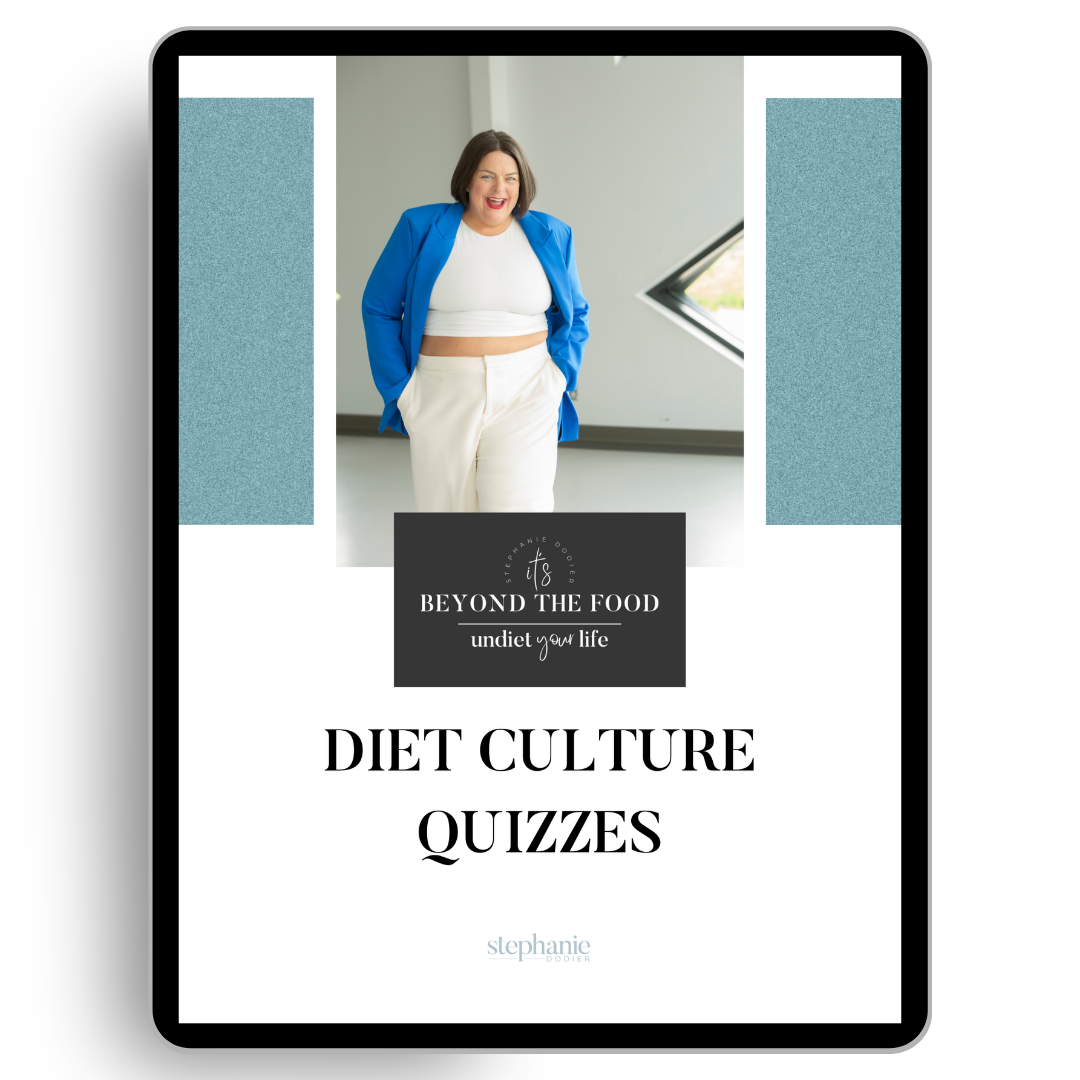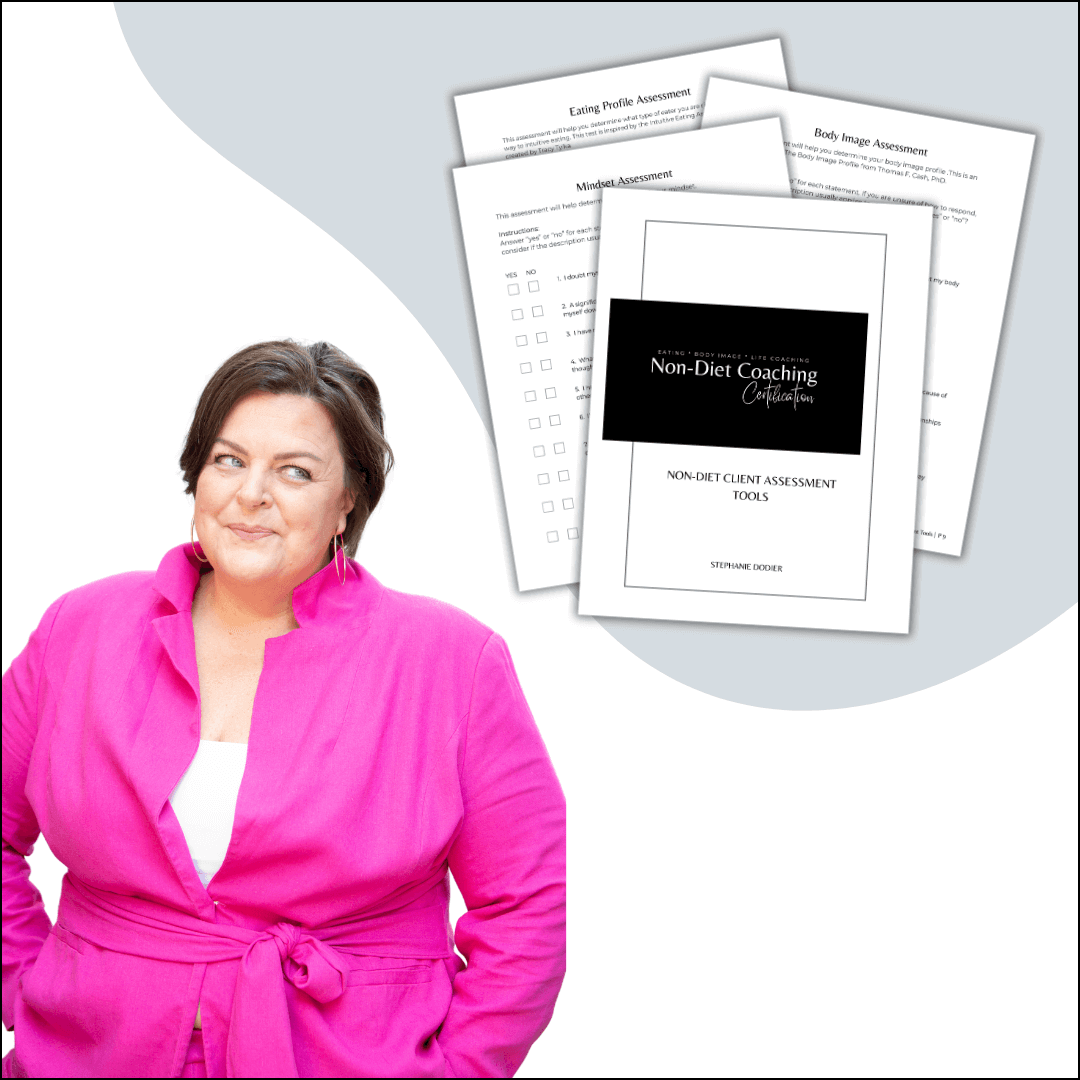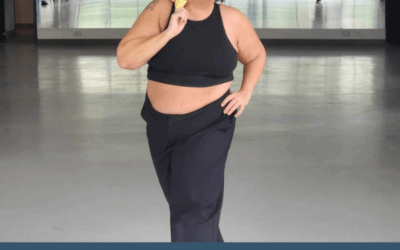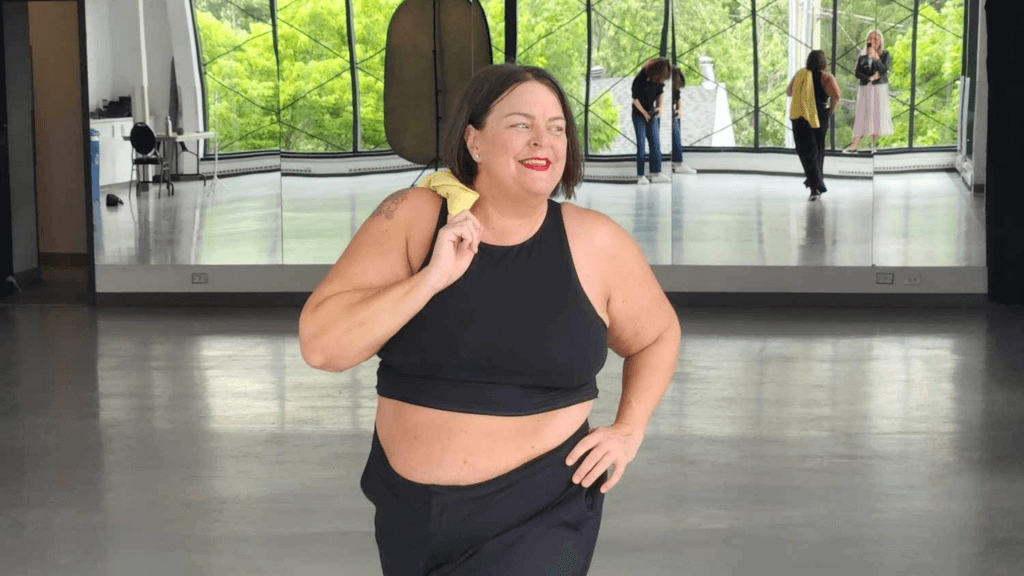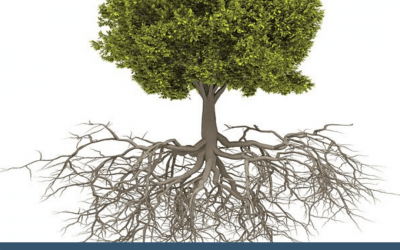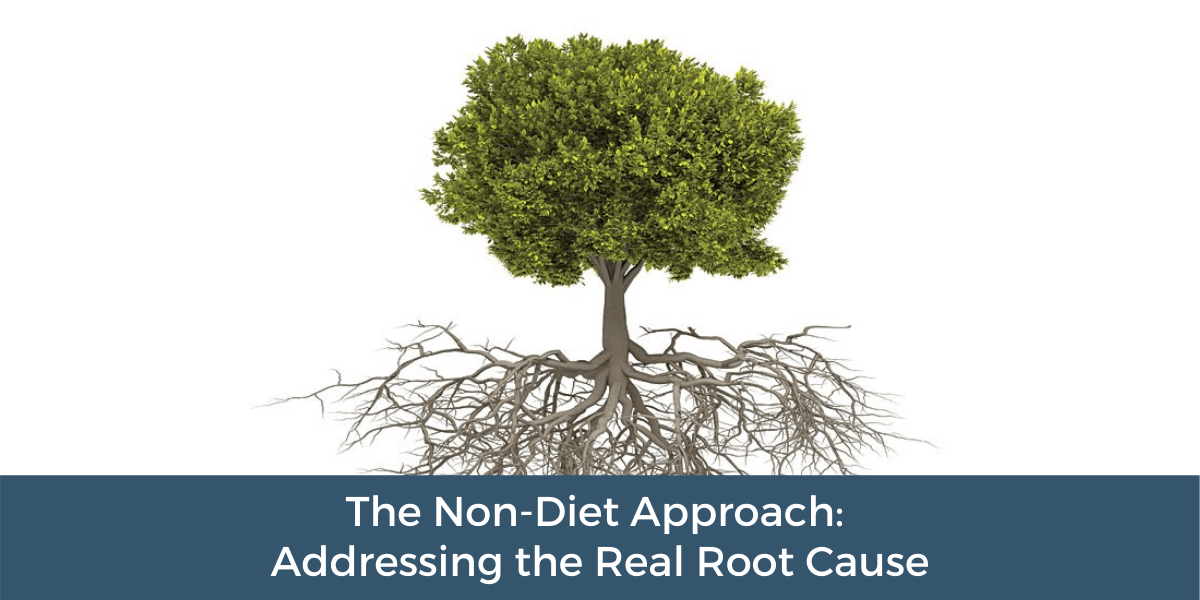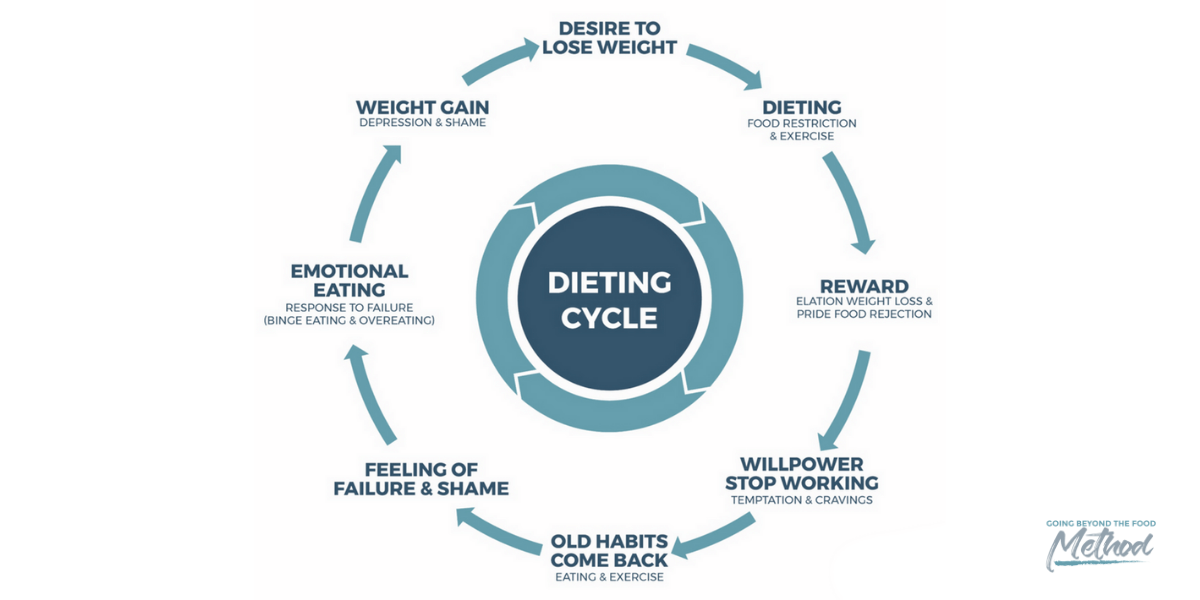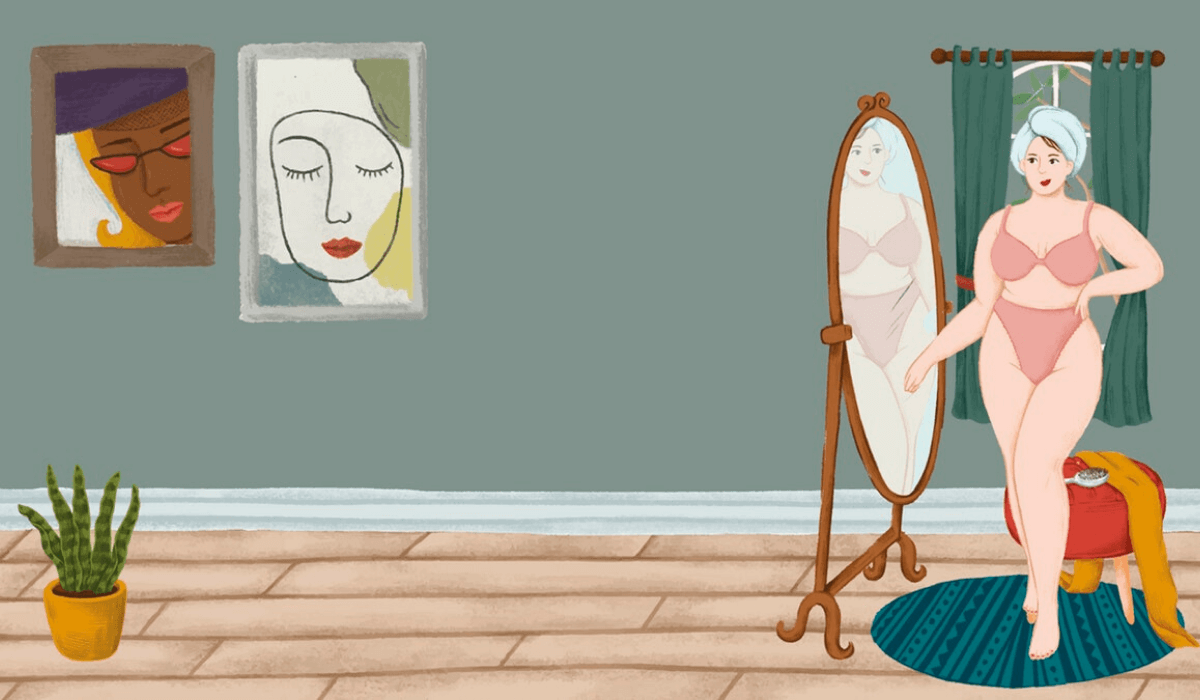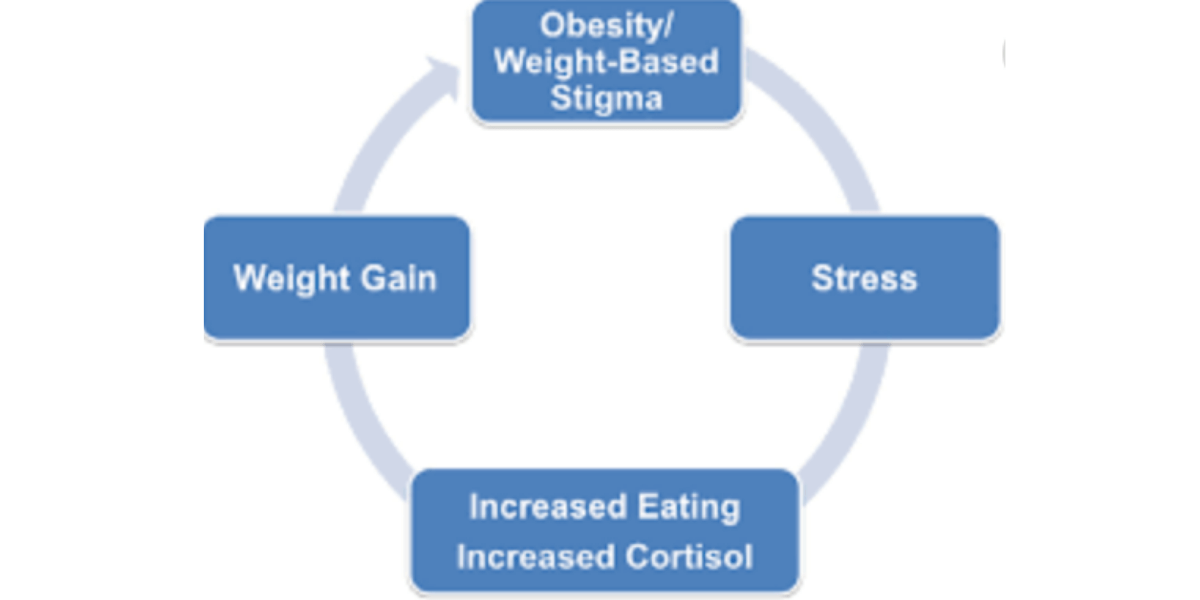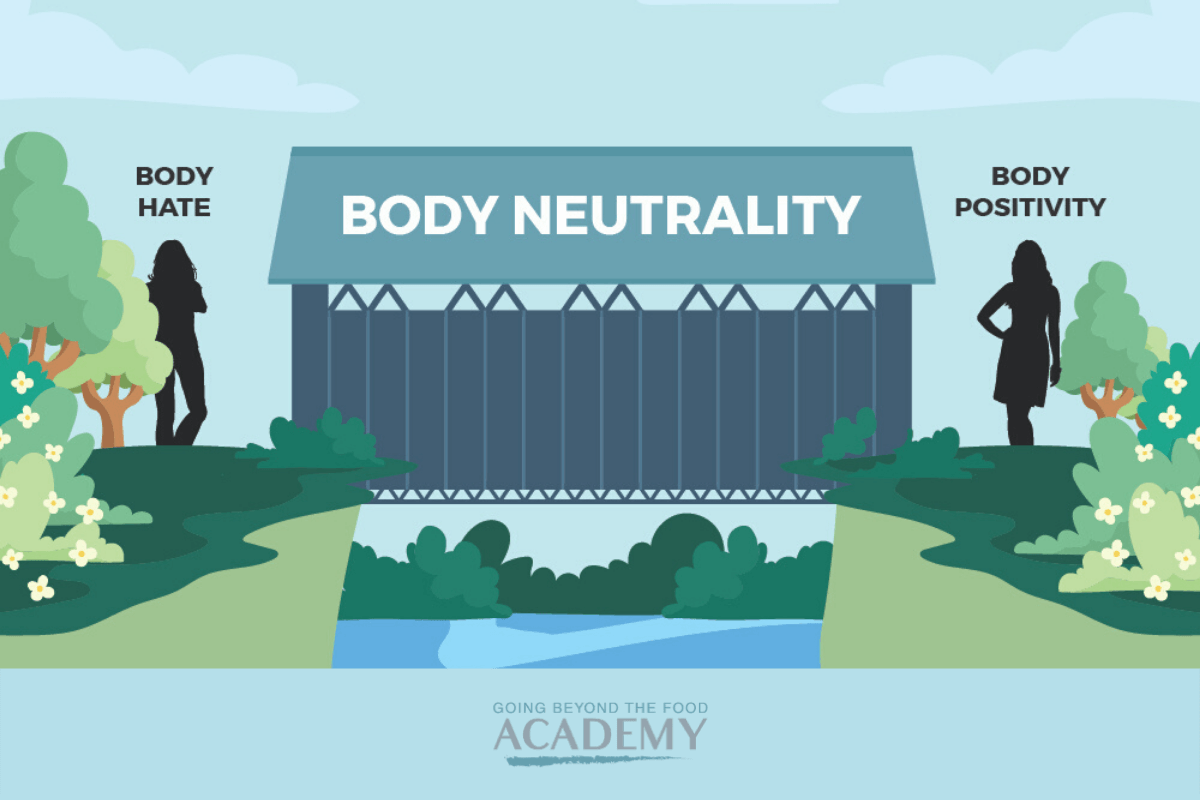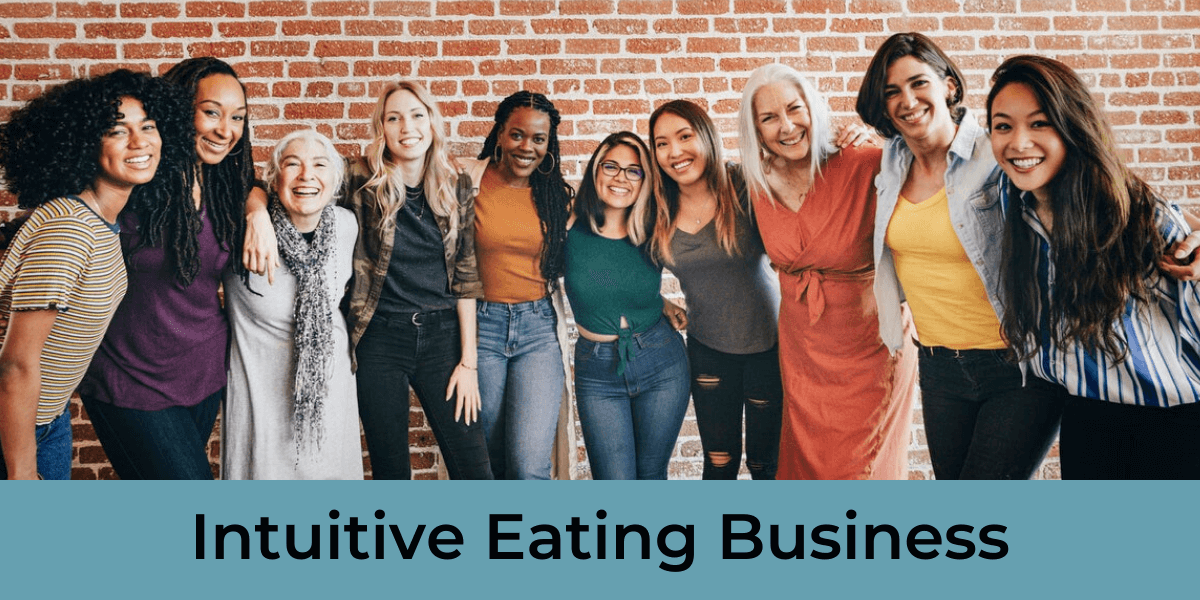These intuitive eating myths come as no surprise since intuitive eating has been named the #1 nutrition trend for the year 2020.
Since it is such a departure from dieting it’s bound to have lots of misconception, fear-mongering (Thank you, diet culture!) and yes false beliefs surrounding this practice.
These myths cause confusion and doubt. As a nutritionist and expert, I get all sorts of questions like:
“Is intuitive eating healthy?”
“Will eating intuitively make me gain weight?”
“Will intuitive eating work for me?”
In this article, I dispel the biggest 13 intuitive eating myths that I’ve come across since I started my own intuitive eating journey. And in the process of debunking these intuitive eating myths, I hope to help you better understand what eating intuitively means and what it can do for you.
Here’s a quick summary of all these intuitive eating myths:
Myth 1: Intuitive eating is unhealthy.
Myth 2: Intuitive eating will make me gain weight.
Myth 3: Intuitive eating means I’ve given up on myself.
Myth 4: Intuitive eating is simply the “eat when you are hungry and stop when you’re full” diet.
Myth 5: You can be a good intuitive eater or a bad one.
Myth 6: You can count macros and still be an intuitive eater.
Myth 7: Intuitive eating means you eat whatever you want, whenever you want.
Myth 8: Intuitive eating is for healthy-minded people. I won’t do it right and I’ll gain weight.
Myth 9: Intuitive eating doesn’t solve my “over-eating problem.”
Myth 10: Intuitive eating doesn’t lead to weight loss.
Myth 11: Intuitive eating will make you binge on food that you shouldn’t be eating.
Myth 12: Intuitive eating is impossible because of food addiction, and certain foods are addictive.
Myth 13: Intuitive eating is only for people with eating disorders.
Before we dive into these myths, let me first explain what intuitive eating means.
What is Intuitive Eating?
The best and most accurate intuitive eating definition I can give is this: “a self-care eating framework that uses your body’s internal cues of hunger, fullness, and satisfaction to guide your eating behavior.”
Note that this is an eating framework, not a diet program. Unlike diets that dull your sensitivity to your body’s eating cues, intuitive eating encourages you to listen to your body and helps you develop trust in your body’s innate wisdom. Intuitive eating is supported by 100’s of studies showing the health benefits of intuitive eating.
Now let’s look into the 13 intuitive eating myths one by one:
Myth 1: Intuitive eating is unhealthy.
This comes mainly from the fact that intuitive eating allows you all kinds of food, even the ones you may consider “unhealthy.”
Fact: Yes, when you eat intuitively, you can all the foods, because part of the intuitive eating process is to give yourself unconditional permission to eat. This means if you start intuitively, you will likely eat the food that you’re currently restraining. Perhaps that’s carbs if you’re doing keto or animal products if you’re vegan.
Now, one interesting fact to understand is that the World Health Organization defines health as “a state of complete physical, mental, and social well-being, not merely the absence of disease or infirmity.”
This means that health is not just all about the food you eat.
Health is also the quality and quantity of sleep you get, your mental health, emotional stability and balance, spiritual health, movement, etc.
Researchers have found that food restriction has negative physical and psychological side effects. This means food restriction affects your mental health.
For instance, studies reveal that women who go on a diet and restrict food have higher levels of cortisol in their bodies. Cortisol is a hormone that our body releases in response to stress. This hormone is linked to higher levels of inflammation, high blood pressure, change in blood lipids, and other negative factors that can adversely affect your health. Also, the restriction has been associated with depression and anxiety.
We also know that scientific studies associate weight cycling with morbid health conditions, meaning that being caught in an endless cycle of restricting and overeating leads to negative health consequences.
So is intuitive eating healthy? The answer is a big YES because it prevents all the negative side effects associated with dieting!
Not only that…Many of the intuitive eating benefits such as lower cholesterol levels, decreased stress, and improved mental health is backed by scientific evidence!
Myth 2: Intuitive eating will make me gain weight.
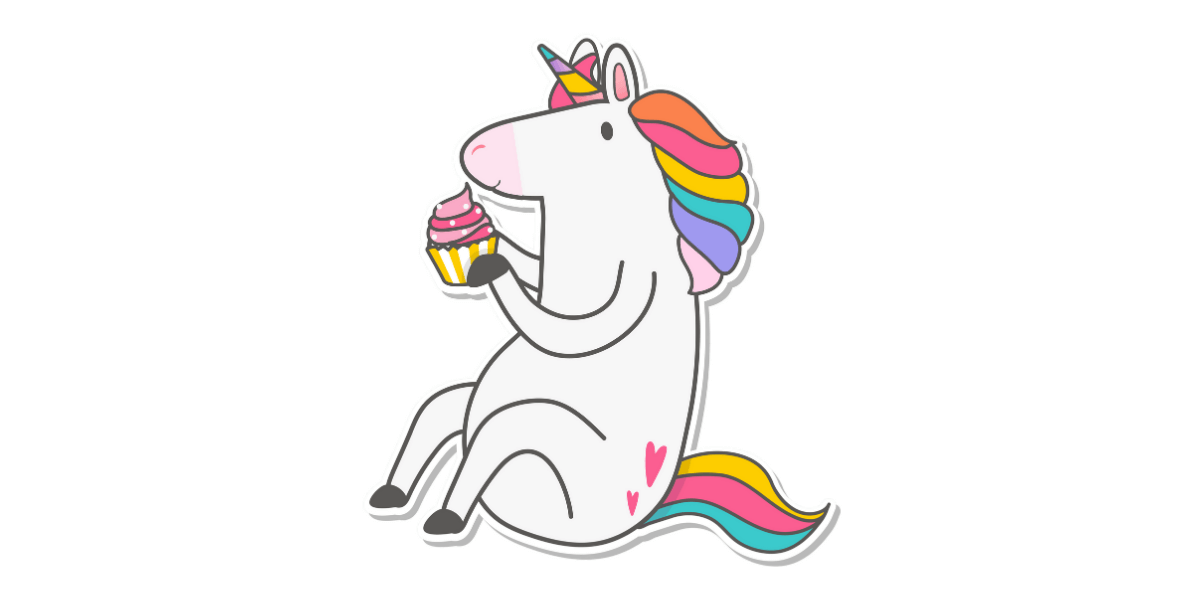
Another version of that myth is intuitive eating causes weight gain.
Now, before I go any further, I want to validate the desire for weight loss that you might have. These are real and consistently encouraged in the society that is laden with weight stigma. Weight stigma is also known as weight bias, weight-based discrimination, and also stereotyping based on a person’s weight.
So it makes perfect sense that you are afraid of gaining weight or that you desire to lose weight.
Fact: Intuitive eating DOES NOT cause weight loss or weight gain all the time. The truth is, none of us knows what the body will do as a result of changing the way you eat. If a dieting coach or guru predicts that you will lose 20 pounds in four weeks as a result of their new diet, that is BS.
We don’t know what’s going to happen with your body when you start becoming an intuitive eater. No one knows except your own body!
But we know that, when you start eating in accordance to your body’s natural hunger and satiety cues, this eating behavior will send information to your hypothalamus, that gland in your brain that regulates the hormone production around appetite and weight regulation.
Your hypothalamus establishes your set point, which is the weight range which your body believes to be healthy for you. Intuitive eating will take you to that weight range.
Now, that weight range may not be what you want. It may not be the “ideal” BMI for you. But your body’s innate wisdom knows it’s best for you.
(You can read my blog post about your body’s setpoint if you want to have a better understanding of the topic. Also, here’s a study that shows that Health At Every Size has more positive outcomes than dieting for weight loss.)
Intuitive eating will not either make you lose weight or gain weight. It will only support doing your body what is best for you.
Myth 3: Intuitive eating means I’ve given up on myself.
Another version of that is “Intuitive eating is lazy” or “Intuitive eating is just an excuse to eat whatever you want and not have to practice dietary control.”
Fact: If you think this myth is true, it means that your self-worth is based on how you engage with food. Likely your self-image is tied to the size of your body or looks and food is the weapon of choice to control your body appearance.
The truth is we were all born worthy. Along the way, someone came and led us to believe that we needed to earn our worth. Perhaps a few years later, dieting came into your life and then you associated a thin body with worthiness.
Then, after a few years of dieting, you associated your eating habits with how worthy you are. Thus, in your mind, eating “everything” meant you weren’t worthy.
Also, people judge those who eat intuitively as “lazy” because they associate their self-worth with dieting or eating “healthy.”
But does intuitive eating mean you’ve given up on yourself and that you’re lazy? Quite the contrary. It means that you are actually trusting yourself and that you have removed your self-worth from the way you look and the way you eat and reconnect to your innate power.
Myth 4: Intuitive eating is simply the “eat when you are hungry and stop when you’re full” diet.
Fact: This seems to be one of the most common intuitive eating myths, because the diet culture is prevalent in our society. When you have this myth in mind, that’s your diet brain speaking to you. It makes you believe that you must control what you eat in one way or another and that you are innately not smart, wise, or good enough to know what you should eat. Your diet brain makes you fall for the next diet or repeat the same diet.
The truth is, intuitive eating is not just another diet. Rather, it’s an entire eating framework. It’s a philosophy that changes your entire relationship with food. There’s more to it than just what you eat, when you eat, and how much you eat.
Intuitive eating is about the entire relationship, what comes before and after. This means changing your perception around how you should engage with food and what it means to be engaged with food. I’ve broken down how to eat intuitively in 5 easy steps.

Myth 5: You can be a good intuitive eater or a bad one.
In other words, intuitive eating works for some people and it doesn’t work for others.
Fact: We know that diets don’t work.95% failure rate within 1-5 years. As a result, you have worked really hard at a process that doesn’t and adopting on the way perfectionistic behaviors and an all-or-nothing mindset. With each diet, your brain gets rewired to see food, exercise, lifestyle, health, behavior as good or bad or “all in or all out.”
The longer you diet, the longer you maintain this all-or-nothing frame of mind. I’ve worked with women who are typically 40 plus and that have been dieting at least 10, 15, 20, 30 years. What I’ve found is that this all-or-nothing mindset has spread throughout their entire life.
That’s why Going Beyond the Food Academy is a life-changing process. The first step of the program is to learn tools to shift your mindset away from “diet brain.” Subsequently, this changes the way you interact with your whole life.
Is it possible for you to be good or bad at intuitive eating? The answer is no because intuitive eating is a process, not an end goal. It’s a way of being.
Myth 6: You can count macros and still be an intuitive eater.
As intuitive eating becomes more popular, I’ve been seeing other versions such as keto-intuitive, flexible eating with intuitive eating, vegan intuitive, intuitive cheat day, etc.
Fact: People are getting tired of dieting. Their bodies are getting run down. Their emotions are all over the place. People are looking for another way. And so, diet culture is repackaging and renaming their diet programs so they could fit into intuitive eating because that’s what people want.
However, none of those programs is intuitive eating.
Their diet culture version of intuitive eating is the same old diet programs with “intuitive eating” attached to them. They do this so you’ll feel better about their programs and get you to be more attracted to their products.
Any rule around food is not intuitive eating. When you have rules as to what you should be eating, that means you don’t trust your body. Can you count macros or be keto-intuitive or a flexible eater and still be an intuitive eater? The answer is no.
Myth 7: Intuitive eating means you eat whatever you want, whenever you want.

Another version of this myth is “You can’t eat healthy on intuitive eating. Intuitive eating means intentionally eating unhealthy food.”
Fact: In a way, this is true. But then so what? Why is it a problem to eat what we want whenever we want?
Human’s love dichotomy. Labeling good or bad food makes us feel safe… It makes us feel like we are in control which cannot be further from the truth.
When you transform your eating pattern from dieting to intuitive eating, you have to lift all the rules around food.
There’s a period of time, the honeymoon period, from the moment you begin to when you become at peace with food where you’re trying to figure out what it means for you to eat when you want and whatever you want.
I call it in my program the elastic band period, where you go from restricting to finally achieving food freedom. Imagine pulling an elastic band towards you and then releasing it. What would happen? The elastic will go completely the other way. Then, it will rebound to restriction and go the other way again.
Every time it does a loop, it’s going to have less force in it. Then with time, it’s going to stabilize and be back to normal. That’s what happens when you become an intuitive eater.
When you release the rules, your reptilian brain is like “Holy crap. You mean we can eat the carbs we’ve been restricting for years? Let’s eat it all!” That’s what happens.
But it doesn’t last long, because intuitive eating teaches you to respect your body. When you eat too much of the food that was forbidden before, you likely not feel your best. Ever tried to eat donuts at every meal for a week?
You have to satisfy your reptilian brain and to really prove to your body that there are no more rules. Then your body will stabilize itself.
Myth 8: Intuitive eating is for healthy-minded people. I won’t do it right and I’ll gain weight.
Another version of this myth is, “Intuitive eating works only for certain people. I’m different.”

Fact: Intuitive eating is not another diet or a new scientifically-created way of eating. It’s innate in all of us. We were all born intuitive eaters.
Just observe a baby. When she feels hungry, she cries. When you feed her, she stops crying. Then, she stops feeding when she’s full and falls asleep. The cycle begins anew she feels hungry again.
Intuitive eating is simply going back to the way you were born.
Now, why would you feel it’s not for you? Your diet brain is partly responsible for that. It’s saying, “You know, girl, you’ve been dieting for years. Look where you are today. You’re not doing this right. You have to have a lot of restriction and control. Otherwise, you’ll lose control. You’re not good enough to do intuitive eating.”
Is intuitive eating only for certain people? Absolutely not. It’s for everyone because we all have it within us to be an intuitive eater. But if you want to be 100% sure, take the intuitive eating quiz.
Myth 9: Intuitive eating doesn’t solve my “emotional eating problem.”
Fact: There is only one truth around that. Intuitive eating does prevent emotional eating. Now, here’s the thing. I didn’t say solved it. I said to prevent it.
If you find yourself saying that eating intuitively won’t solve your emotional eating problem, again, it’s your diet brain speaking. You have been programmed to seek an external solution to an internal problem. You internally developed the behavior of using food as a soothing or regulate your emotions. This behavior is what we commonly refer to as emotional eating.
And now, you want a quick fix, a formula to come along and tell you how to prevent that. That’s the model of dieting. It’s all external. It’s just about food.
Intuitive eating will not solve the problem of emotional eating… but you will. It’s really up to you. Through the process of intuitive eating, you will figure out why you’re using food to cope with your emotions. Here’s another scoop for you: emotional eating is normal. Emotional eating is a gift when understood properly.
Myth 10: Intuitive eating doesn’t lead to weight loss.
Another version of that is “Intuitive eating can work for weight loss.”
Fact: Intuitive eating is not a weight loss program. The purpose and the goal of intuitive eating have nothing to do with weight management.
Now, because intuitive eating is becoming more and more popular, diet culture has latched onto this trend. It sells intuitive eating as a way to lose weight.
But I’m going to tell you this: if you see intuitive eating being marketed as a weight management program, then it is NOT really intuitive eating.
“… but I need to lose weight” the root causes of the desire to lose weight is what needs to be addressed for most women.
Myth 11: Intuitive eating will make you binge on food that you shouldn’t be eating.
Another version of that is “I’ll eat intuitively, but I’ll just eat junk food.”
Fact: If that’s what your body needs, then yes, you’ll binge on food you shouldn’t eat.
It may make you uncomfortable because you might believe that your body does not know what it needs. Thus, you might be thinking that you need to rely on someone or something else to tell you what your body needs.
The part of the intuitive eating journey is coming back to a respectful relationship between you, the spirit, and your body. This means that you do support your body through healthy behavior. In response, your body supports you through life.
When you experience a desire to binge or overeat, it’s because your body is trying to tell you something. The body is trying to point out to you that you are in a state of imbalance, that is something inside you is not okay, and it needs to comfort itself through food.
So does intuitive eating lead you to binge on food you shouldn’t eat? The answer is no. But it does make you more aware of the messages that your body tries to send you.
Myth 12: Intuitive eating is impossible because of food addiction, and certain foods are addictive.
Now, among the intuitive eating myths, this is a loaded one. Before anything else, if you are currently holding the belief that there is such a thing as food addiction or sugar addiction, I would refer you to episode 153 of The Beyond The Food Show. We had a food addiction specialist actually do a complete analysis of my eating pattern and my eating history. I shared all the results publicly with everyone via the podcast and a video interview.
She came to the conclusion that the Going Beyond the Food Method was extremely effective in healing or helping people to overcome what they believe to be sugar addiction or food addiction.
Fact: The belief that food can be addictive is debatable. At this time there is no study demonstrating human addiction to food and sugar.
The only study showing demonstrating evidence of sugar addiction in a rat model and researcher came to the conclusion that sugar addiction in the rats was only present when sugar was restricted.
If you’re currently thinking you are addicted to food and or sugar, I highly recommend that you seek help immediately.
Is intuitive eating impossible because of food addiction? The straight answer is no. But if you struggle with food or sugar addiction, there’s a deeper level of work that you need to do before you can actually become an intuitive eater.
Myth 13: Intuitive eating is only for people with eating disorders.
Fact: No. In fact, it is not, because intuitive eating is the natural way that humans engage with food. We were all born with this propensity.
Now, intuitive eating is used in the treatment of eating disorders. Why? Because it’s very effective. People who suffer from eating disorders are actually not connected to the innate cues of hunger and fullness and satisfaction. They use food in a disordered way to meet their unfulfilled needs.
When your eating behavior is causing harm to you physically, emotionally, or mentally, that’s when you need to seek professional guidance and help immediately.
Intuitive eating is not only for eating disorders, although it is used to treat eating disorders. It is for ALL of us.

Bonus: Myth 14: Intuitive eating has no scientific basis.
Fact: This is by far the easiest of all intuitive eating myths to debunk. Intuitive eating is a proven and well-researched eating framework. As of today, there are well over a hundred intuitive eating research studies published, most of them peer-reviewed, that demonstrate the efficacy of intuitive eating.
To this day, there is not one scientific research that shows any kind of danger associated with this eating framework.
Intuitive eating has a scientific basis. There will be more research around it as more and more people become intuitive eaters.
Ready to Begin Your Intuitive Eating Journey?
Now that I’ve debunked all these intuitive eating myths for you, I hope you have a better understanding of what eating intuitively really is. So how do you feel about intuitive eating now? Are you ready to start becoming an intuitive eater?
Here’s what I recommend that you do: First you can access all of our services on our work with us page. We have a number of programs and service levels enabling us to serve most women:
Free Resources and Masterclasses: Get started and get to know us better!
Private coaching with Stephanie and her team Stephanie and her team of Certified Non-Diet Coaches are waiting to support you in a one-to-one setting with an individualized plan.
Undiet Your Life group coaching program is for women to learn how to eat intuitively, become body neutral, and learn self-coaching at their own pace while being supported in a group setting by Stephanie and her team of Certified Non-Diet Coaches.
Non-Diet Coaching Certification for professionals ready to integrate the Going Beyond The Food Method™️ in their practice and for women wanting to become Certified Coach and build a business coaching other women beyond the food.


